Drowning in the Zone & Part 1 of "Fayes Final Days"

At this point, there is little room to argue about where this country is at the moment and where it is likely headed. I don't like to predict things but instead catastrophize and text people heinous snips of news to, I suppose, share bad news to unburden myself. It never works but, if you are one of those people, thank you. Anyways...we are in the thick of it now, and anyone who thinks this moment is anything other than batshit insanely dangerous needs only glance back a century to see history, in many ways, is repeating itself...making all of this not just predictable, but tragically preventable.
We were supposed to be better than this, and, so far, we have failed.
From last Friday's SCOTUS ruling which many see as the likely catalyst for the balkanization of America (opinion writer Jamelle Bouie does a great breakdown here); the barely covered SCOTUS ruling that states can now bar Medicaid payments to Planned Parenthood; the absurd grand opening of "Alligator Alcatraz" located in the Florida wetlands where influencers are already promoting "prison merch" (see below) while Trump callously speculates on what happens to these people (again, they are NOT criminal prisoners but migrants detained for immigration violations...they have never seen a judge) if they escape, quote, "If people get out, there's not much waiting for them other than alligators and pythons. Nowhere to go. Nowhere to hide," and much, much, much more.
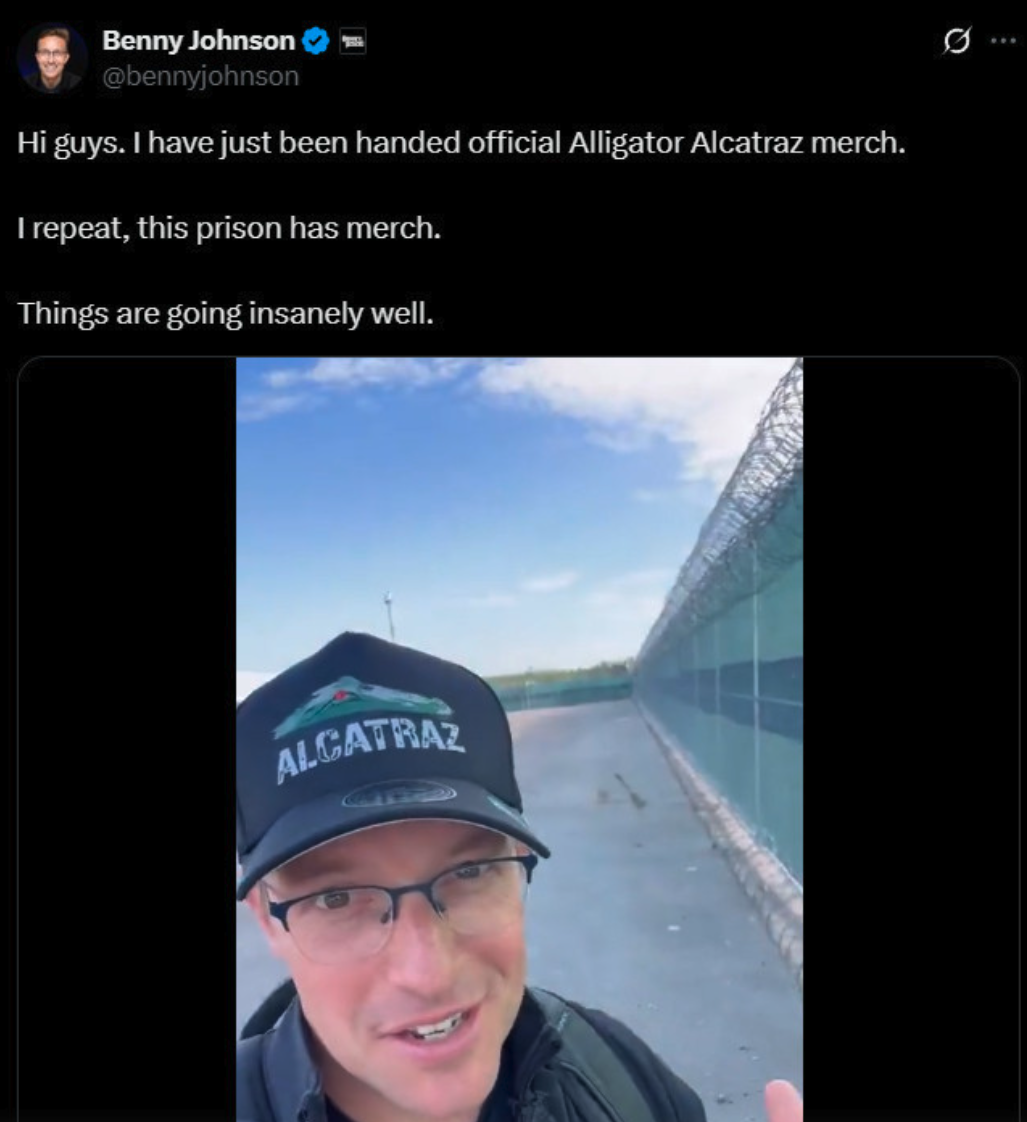
Zooming out, we are in the eye of what far-right American media executive, political strategist, and former investment banker Steve Bannon's tactic of "flooding the zone," designed to confuse, disorient, and eventually break you to submit. However taxing it all is, I can guarantee that there are people out there, especially with the likely passing of Trump's OBBB, who have it worse.
That's all to say I have hit a wall covering this kind of content in the way that I have and have decided to switch, yet again, to a new means of communication. That doesn't mean I'm going to quit writing; I plan to change the medium from blog posts and essays to short fiction that hopefully captures what's going on today through what I was trained to do - first in acting and theatre, and then in creative writing and fiction - all those years ago. My aim: to create through feeling and not so much thinking to, as Ray Bradbury put it, "find out who you are" in this God forsaken time. Through that, my hope is that through this week's story and future one's I plan to write can transmute the goings on of today differently than the journalistic, essay content so frequently put out there. No dig on all that (it's fantastic and needs to be supported), but I sense I'm not achieving what I could be to the extent that I want by doing only that.
Thank you for being with me on this journey. I'll be here, writing. I hope you will be here reading. Stay safe out there.
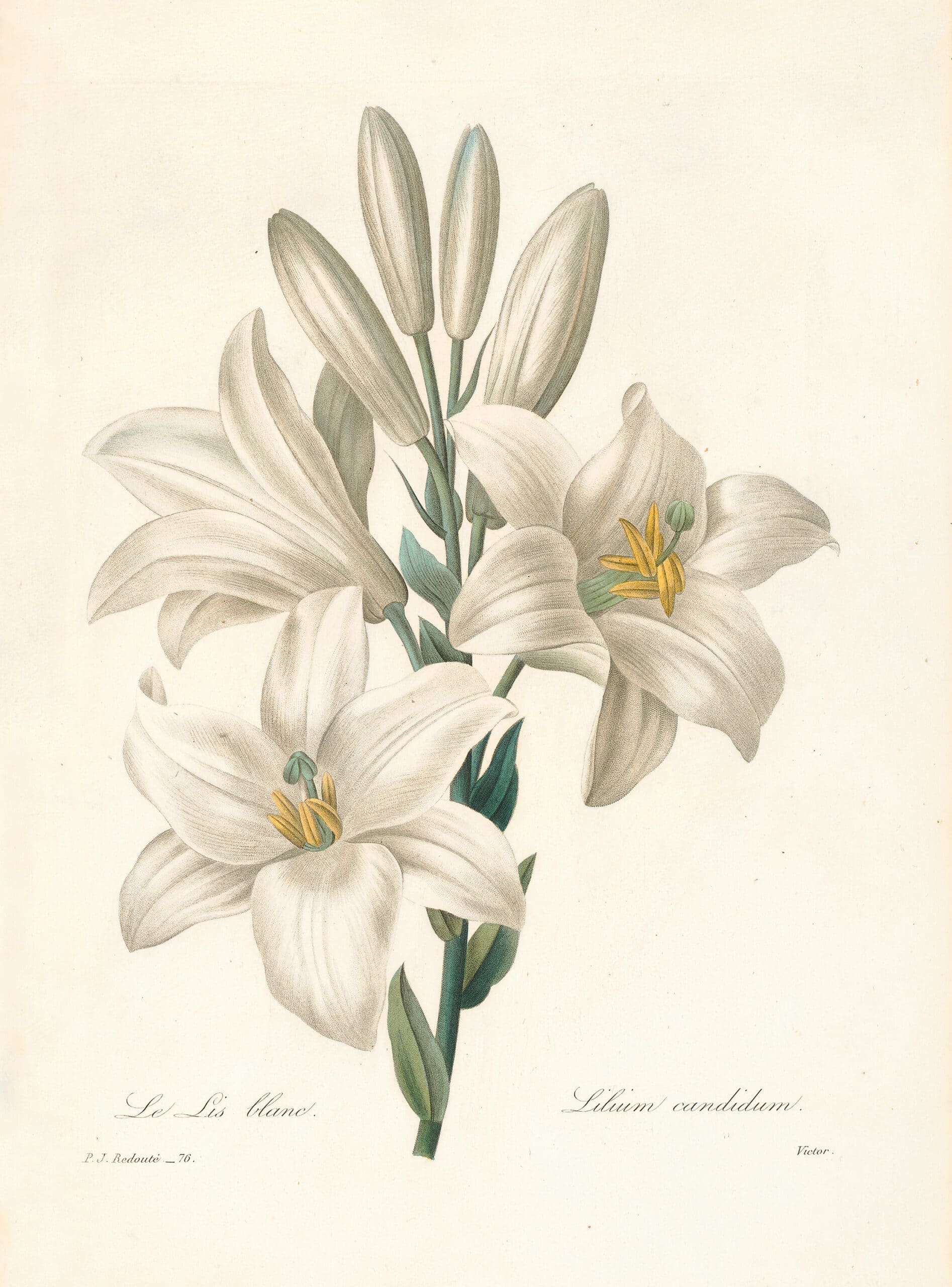
Part 1 of "Fayes Final Days"
Faye's final days were some of the easiest of her life.
For one, every lily in her apartment had died. Toiling to her Tigers, Trumpets, and Madonnas for months had required Faye to put her health second; a self-imposed trick to not face the slow, predictable pin drop of her life. This burdensome effort of simply maintaining herself following the long, detailed medication schedule, eating the prescribed (and disgusting) snacks, performing the pointless physical exercises that left her feeling more dead than alive, and enduring countless other ordeals Faye was always forgetting, was simply too much to manage alongside caring for all of her lilies. She loved them like her own children (she had none), but unlike so many other things in her fleeting life, she simply couldn’t let them go.
Even her doctor told her to stop when she dropped and broke a pot during a coughing fit.
"First of all, are you ok?"
"No," said Faye. "I mean yes but no, not right now. I was trying to change their dirt and then I was going to water them and, well, those little green crystals."
"If you want to exhaust yourself and have another accident," they said. "Keep choosing them over yourself."
"I'm dying. What is the point of living if I can't do anything while I'm alive?"
The doctor was about to lash but stopped themselves. They had heard it all before, but it never got any easier. They thought it would, yet some things in life are so painful and so beautiful that you can never get over them, just as you can never get over the fact that they exist. The doctor sighed, remembering all the people who had come before Faye, and all those who would come after - even themselves.
"Now is the time to say goodbye. Your body, in its state, can't handle all the stress." They paused when they felt the beat of their own heart go thu-thump, thu-thump. "Leave the flowers for the next generation. They will care for them."
Faye looked down at the scattered dirt and the lily's frail stem, now left with only a single petal clinging to its head. She started to bend over to clean up the mess but hesitated, worried about whether she would be able to get back up again. Since the diagnosis, Faye had become someone who worried constantly about things she never would have given a second thought to before. Now, she worried all the time.
"Do you need someone to come over?" asked the worried. Silence was never a good thing in their profession.
Faye would have hired someone to stop by now and then, if only for a chat, but help was too expensive; almost $5,000 a month. She couldn’t afford it. She wasn’t working. She had no savings and everyone she knew was busy with their own lives. They had things to do, Faye thought. Their own lives to live. No one wanted to waste time watering her flowers or talking about the fading spark of her life. These days, everyone kept to themselves. Maybe it was better that way. It was better it - I - end this way; quiet and anonymous.

"No," said Faye, still looking down at dirt, the lily - the mess of it all. Out of waning self-preservation and ego, Faye obliged to her doctor about getting rid of the rest of the lilies, and began to get the broom and dustpan. "You'll be happy to know that was the last one. They are all gone now."
"I'm sorry," said the doctor. "But it's for your own good."
Faye knew better than to laugh. So, instead, she apologized too.
"I know. Thank you."
This dismissive nature was unlike Faye, but, more and more, it became apparent as a result of being forced, day by day, to leave everything behind.
One day, there was energy in the world for Faye to play with and indulge. The next, she was deemed sick, where all her power and liberty was re-defined by men and women in an institution she only ever thought would be for other people. Other people, it turned out, was her; was, one day, everybody. She fought it, like all dying animals do: kicking, screaming, and bleating until the truth of keeping anything else alive other than herself brought her bones to tears.
*
The next day, one of her last, she felt nagged by jealousy. But, for whom? Her beloved lilies, she realized. They died before she could. They had beat her to it.
She tried her best to ignore this, got up as usual, neither surprised nor entirely grateful, which made her feel guilty for having lived through the night, and went to the sink to pour water into her coffee pot. While the water rushed into the glass carafe, she gazed where one pot, one lily, used to rest. A faint, effortless sun stain lingered on the light-purple countertops. Faye glanced down at her feet and slippers where the broken pot and dirt had been, then up again when the water had reached the top. She poured the water inside the machine, unfolded a biodegradable filter, dashed a few scoops of grounds inside, closed the lid, pressed the red start button, and waited. Faye stared into the red glow of the button for a long time until she thought:
"Maybe if I had used those special nutrient crystals...they would have lived longer. My poor lilies."
Like most young people her age (she was forty-four), Faye never really thought about dying.
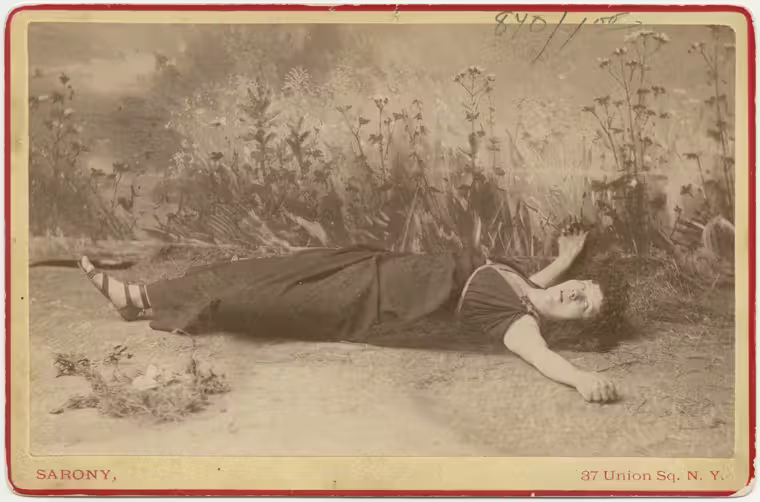
Instead, she thought, like most people, about surviving: making rent, work, finding better work, paying off student loans, seeing friends, seeing her parents, maybe having kids, maybe not; travel and learning new things, paying credit cards down, saving, saving for a house (ha!), reading (ha!), staying off of social media (ha!), and generally, keeping the lights on upstairs enough that when she smiled, it felt genuine and never forced. Faye thought and tried to live, like most people, to be thankful in a world that felt like anything but the opposite.
Life had never become so unbearable that she thought she might die one day. She knew she would but she never put any mental effort into it. She was not a philosopher. She did not contemplate death as a means of preparing for it. Faye was not Socrates, though she knew who he was. She was not stupid. She understood the significance of hemlock. Perhaps, during moments of sudden musing, she considered what it meant to be dead. Sometimes, a John Keats poem might prompt her to think of it, or the way sunlight filtered out and then in a leaf while she was laying in the grass...a pastime she enjoyed before the entire outside world became a threat.
Dying was something old people did. It was meant for those who had lived long, winding, wild lives. At forty-four, Faye had always imagined there would be more. More of what she couldn't say or define or, for most of her life, come up with and organize a goal to achieve "more," but still, she resented feeling cheated, even as she recognized her present, nonexistent gratitude.
Faye had lived well. She had lived enclosed by friends and lovers, through escapades and mishaps, chasing dreams only to forget them and sprint after others: like a child chasing butterflies with a net, until the net was so full, so bursting with every good and bad thing, that the contents themselves mutated into the disease that brought her present state.
Someone had probably told her once that, what you love can sometimes kill you. But what better way could there be than that? If there was, Faye did not want to know it and refused to believe temperance existed.
Yet why the regret? she quietly asked herself in the middle of most nights, with all the windows closed and only the streetlight for comfort. Why the specter of needing? Was there one more gift of life that would leave her finally fulfilled and ready to be released?
Apathetic to moderation and always one to be swept up in the whirlwind of her epicurean lifestyle, the subtle, unnoticed arrival of Faye’s cancer was similar to that of a random house party guest a friend of a friend let in. At first, there were tiny coughs Faye waved away with a cigarette pinched between her middle and pointer finger, always blaming the interruption to the inclement weather or allergies - all lies. Then, after months of more living, living, living, came the irrefutable chest pain, which she again blamed on age, her body, time, (pains of an aging Millennial, she joked) and those greasy hamburgers from her favorite speakeasy down the street. And of course there were the martinis she loved...so many martinis: always dirty, always double olives with meat, cheese and crackers with it all. If no one had the money to buy another round, Faye would.
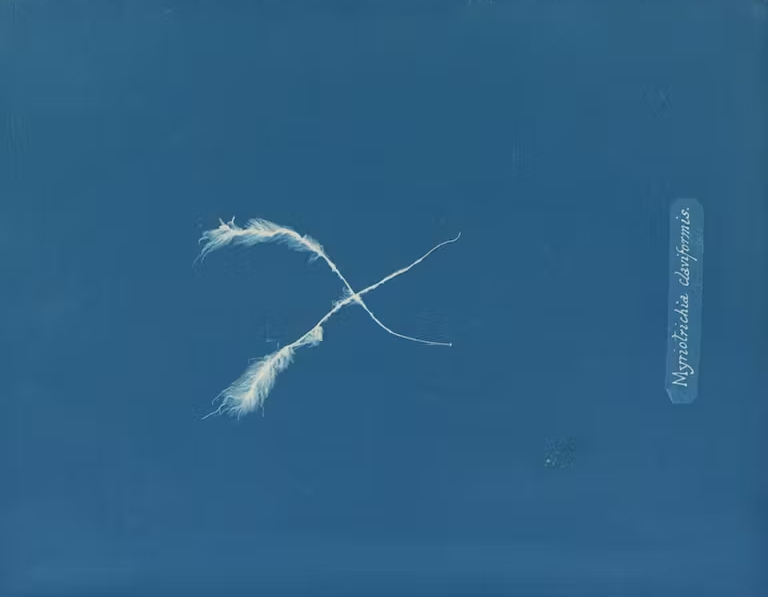
“You’re burning your candle at both ends,” Mari her longtime girlfriend (now ex-girlfiend) always told her. “Brûler la chandelle par les deux bouts.”
“C'est ma bougie,” Faye would reply. “Help me light it?"
Which they did as one for many years until their paths, like most lovers, split into two separate ones. One day, they were. The next, they were not. And only a few weeks later, after both were as settled as they could be apart, Faye found blood against her new white bathroom sink. She rinsed it away as soon as she had seen it with a rush of water and a hurried Parliament cigarette from her fire escape. Still, a quiet voice screamed to call Mari, to tell her. Instead, Faye told told this voice, I cut myself flossing. She never owned an inch of floss in her life, let alone used it.
Months passed and Faye couldn’t even look at herself in the mirror as more of these episodes continued. She found herself unable to eat and drink. Even getting to work and through a day was almost impossible. She ran out of sick days. The moment she got home, she fell into bed uncertain if she would wake up. She didn't care. It was better this way because, in her mind, if what she did, why she was, who she was, day by day, was to be taken, so be it but let it be on her terms. Faye had taken too much, but like a greedy child tasting ice cream for the first time, she still craved more - more life, more energy, more applause, laughter, chaos, and joy. So she kept doing what had brought her to this point, ignoring how she felt and disregarding concerns from friends and strangers alike.
So, it was no surprise that Faye said, "of course," when Mari asked if she could take her out to their favorite Italian restaurant for Faye's birthday. Mari hoped they could still be friends rather than old lovers forever. Mari, more sentimental than Faye, chose the restaurant because it was the same place with the wine from a town they visited and Faye could never pronounce. But then, after catching up and light flirting, another coughing fit sent Faye to the ground, with spit, blood, tears, and wine staining her hands and cheeks. Mari begged startled strangers for help and begged Faye to tell her what was happening.
“It’s okay,” Faye managed to whisper. “This is what I wanted. You gave me exactly what I needed. Thank you, Mari.”
Faye, no longer able to resist in quiet rebellion, could do nothing but try to enjoy the taste of her last sip of wine and the vision of Mari in her eye as death finally said, "Enough."
END OF PART 1
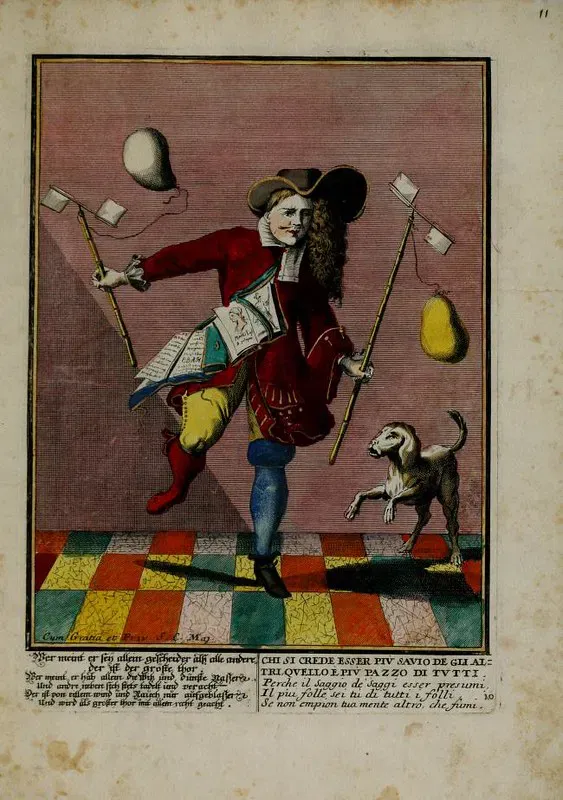
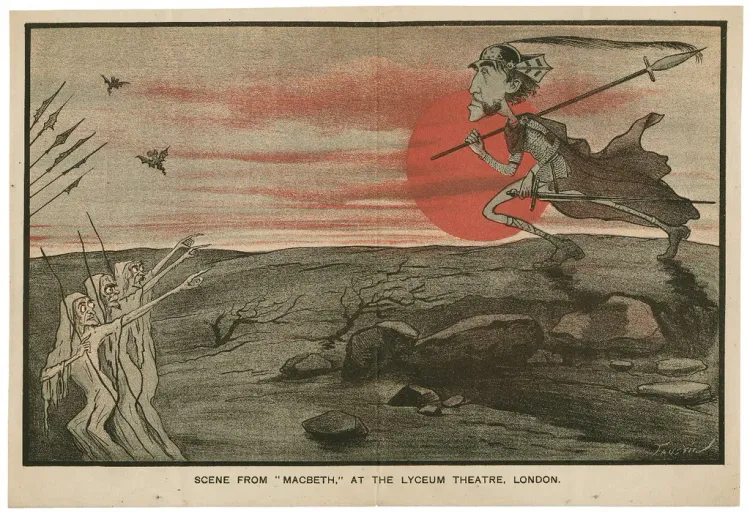
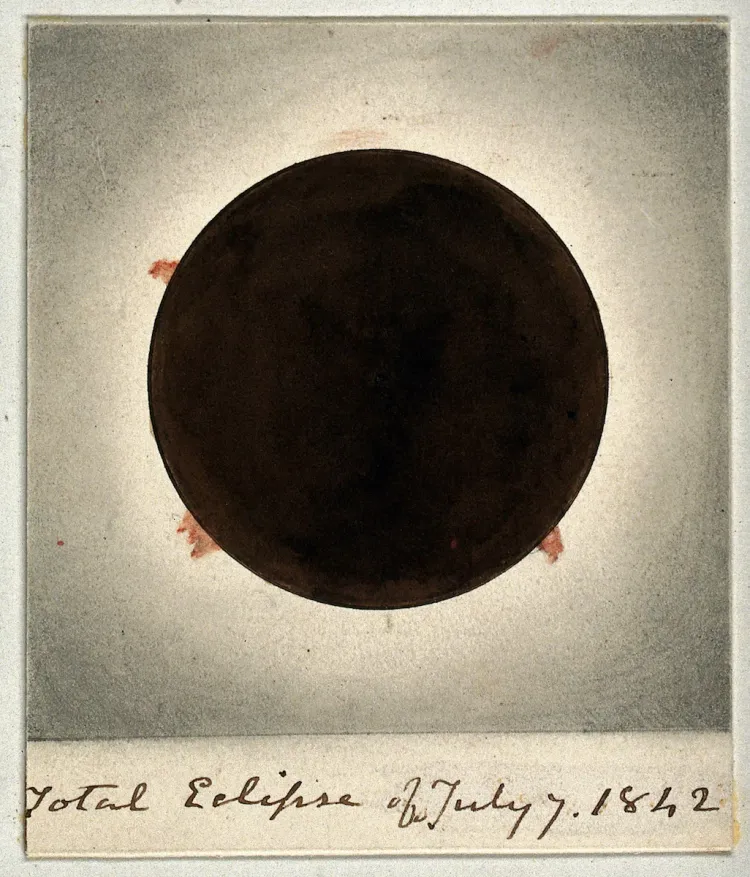
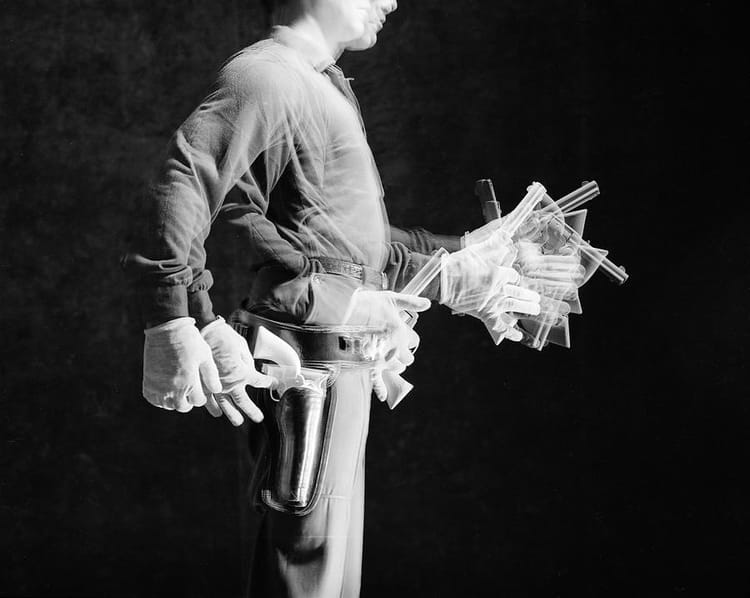
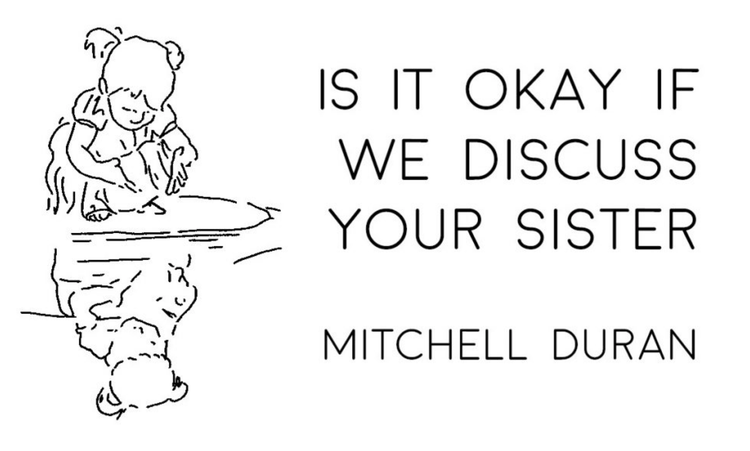
Member discussion